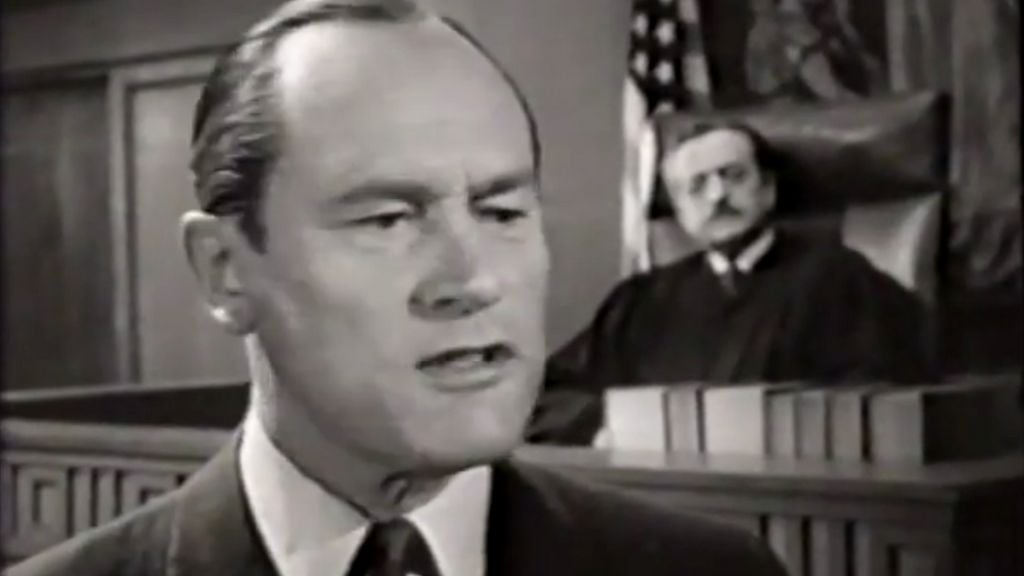Legal dramas have long been a staple of television, from the gorgeous courtroom dramas of “Law & Order” to the brutal tactics of “The Good Wife.”
But before there was Jack McCoy or Alicia Florrick, we had The Defenders, a 1960s legal drama The play broke new ground and broke taboos.
Unlike its contemporaries, The Defenders isn’t just about winning cases or dramatic courtroom moments. It was a show with a conscience that wasn’t afraid to tackle the controversial issues of the day.


Abortion, civil rights, war crimes—no topic is off limits.
In an era when television often shys away from controversy, The Defenders steps up to the plate and proves that television can not only entertain but also challenge viewers.
Let’s take a look at how this quiet revolution unfolded and why The Defenders remains a landmark in television history.
When The Defenders premiered in 1961, most legal shows were formulaic and light-hearted. Shows like Perry Mason focus on cleverly solving cases and are rarely morally ambiguous. But Defenders is not interested in neat resolutions.
Starring EG Marshall as lawyer Lawrence Preston and Robert Reed as his son and law partner Kenneth, the show revolves around a father-son law firm The cases handled are often closely related to families.


The Prestons were more than just lawyers, they were advocates for justice, even when the stakes were personal or political.
The show isn’t afraid to let the good guys lose. Victory in court is not guaranteed, and events often end in ambiguous or bittersweet ways, reflecting the complexities of justice in real life.
Address taboos
The Defenders is revolutionary not only in its storytelling, but also in the themes it dares to explore. In an era when most television shows shy away from controversial topics, The Defenders boldly addresses the issues of the day.
One of the most groundbreaking episodes was The Defenders Season 1 Episode 30, “The Benefactor,” which centered on a doctor accused of performing illegal abortions.


The episode, which aired in 1962 (more than a decade before Roe v. Wade), examined doctors’ motivations and the moral dilemmas surrounding abortion long before the topic was openly discussed on television.
The episode was controversial, sparking debate among viewers and critics.
But it also set a precedent for TV series to explore complex social issues, paving the way for shows like “Grey’s Anatomy” and “The Good Wife” to tackle abortion in nuanced and in-depth ways.
During the height of the civil rights movement, the Defenders used its platform to explore themes of racial injustice. The series explores issues of segregation, police brutality and discrimination in a way that is both timely and urgent.


One memorable storyline involved the Preston family defending a black teacher accused of inciting a riot. The case highlights the systemic racism of the era while forcing viewers to confront their own biases.
Another standout episode delves into the trials of Nazi war criminals. This case is not only about guilt or innocence, but also about the moral responsibility of those who obey orders versus those who give them.
In a post-World War II world grappling with the legacy of the Holocaust, this kind of storytelling is both provocative and necessary.
The Defenders Legacy
Although The Defenders only lasted four seasons, it left an indelible mark on television.
Its willingness to tackle controversial topics paved the way for a new era of legal dramas – ones that weren’t afraid to blend courtroom drama with social commentary.


Shows like Law & Order owe much of their DNA to The Defenders.
The iconic program is known for its “rip-from-the-headlines” stories, often dealing with real-world issues such as sexual assault, immigration and political corruption.
While “The Defenders” didn’t have the longevity of “Law & Order,” it laid the groundwork for the show’s blend of legal drama and social relevance.
Likewise, “The Good Wife” follows in the footsteps of “The Defenders” in exploring the personal and political aspects of the legal system.
Alicia Florrick’s journey from scandal-plagued wife to powerhouse lawyer often reflects the complexity of The Defenders, which touches on everything from abortion rights to government surveillance.
What makes The Defenders so compelling is not only what it accomplished at the time, but also how relevant its themes remain today.


Many of the issues it addressed, from racial inequality to reproductive rights, remain hotly debated.
In an age where dramas often prioritize sensationalism over substance, The Defenders reminds us what can be accomplished when media dares to challenge its audience.
It’s proof that television doesn’t have to shy away from difficult conversations—in fact, it can spark them.
The Quiet Revolution of The Defenders is its ability to blend entertainment with conscience. At a time when television is largely about escapism, it shows that storytelling can be a force for change.
This is not just a legal drama, but a call to action, urging viewers to think critically about the world around them.


While “The Defenders” may not be as well-known as “Perry Mason” or “Law & Order,” its trailblazing status in television history is well-deserved.
Its influence can be felt in every legal drama that dares to tackle tough issues, proving that sometimes the quietest revolutions have the loudest reverberations.
What are your thoughts on legal dramas that deal with controversial topics? Have we lost some of our grit in modern television, or do today’s shows still carry the torch lit by The Defenders?
Share your thoughts and let’s celebrate the legacy of television’s first legal drama in good conscience.
Unfortunately, The Defenders isn’t available to stream, but you can find some episodes for free on YouTube.

